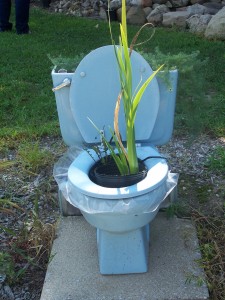 Some people think that pastors, priests and other supposedly holy types never curse. Most of the ones I know do. And those who don’t would probably benefit from an occasional tirade of expletives. A 2009 study reveals that in moments of pain, such as banging your shin against a table, a cathartic outburst of curse words increases your endurance and makes the moment more bearable.
Some people think that pastors, priests and other supposedly holy types never curse. Most of the ones I know do. And those who don’t would probably benefit from an occasional tirade of expletives. A 2009 study reveals that in moments of pain, such as banging your shin against a table, a cathartic outburst of curse words increases your endurance and makes the moment more bearable.
However, the same study states that excessive swearing over time renders curse words less effective in those painful moments when we most need them. To loosely paraphrase the writer of Ecclesiastes, who once claimed “to everything there is a season,” there is a time to swear and a time to refrain from swearing.
I wish someone would tell my neighbors. I live in a college neighborhood where in the late hours of most weekends, drunken students speaking much too loudly manage to work the “f word” into every sentence. They use it as a verb, noun, adjective, adverb, and even as an occasional dangling participle. Excessive cursing has rendered most of their conversation banal. On the other hand, I know a few holy types whose refusal to swear also makes them dull companions. There are times when “golly” and “shucks” don’t cut it.
Fortunately, the English language provides an abundant collection of curse words from which to choose. I’m going to come right out and tell you that my favorite expletive is “holy sh-t.” It is a versatile phrase and can be used in moments of anger or disgust as well as to express wonder and amazement. It is also one of the few expletives that can be spoken without moving your lips (there are a few others if you’re inclined to think about it). Thus, if you have any kind of ventriloquistic skills you can actually blame your foul language on someone else.
I love the phrase “holy sh-t” because it so wonderfully weds the sacred and the mundane. Holy is a word usually reserved for the spiritual realm. God is holy. Places of worship are holy. Sacraments are holy. In contrast, sh-t is by its very nature commonplace and disgusting. Its odor is generally repulsive to most of us. Yet there is a universal quality to sh-t. With the exception of the anal retentive and constipated, most of us experience its unpleasantness on a daily basis from infancy till death. To quote a popular children’s book, “Everyone Poops.” Popes do. Fashion models do. Even your first grade teacher did.
Yet for all its repulsiveness sh-t is an essential component in the cycle of life. I grew up in a small town in Vermont surrounded by dairy farms. On breezy days we could not avoid the constant reminder that sh-t, however unpleasant, is also the source of beauty and new life. Sh-t makes the flowers grow. On a metaphorical level, life’s ethereal moments rise from the mucky ones.
Your pious aunt probably won’t believe you when you tell her but the word “sh-t” appears in the Bible. Saint Paul, of all people, uses it in Philippians 3:8. In most English versions the word is translated “rubbish,” “garbage,” or “dung.” The word is skubala in the original Greek and the most accurate translation is “sh-t.” Jesus, who many people consider to be holy, once told a story using the image of manure to symbolize his ministry. (Luke 13:6-9) This is the same man who according to tradition was born in a stable. If that stable was like any other place where animals congregate, it was undoubtedly full of sh-t. That’s not something we usually ponder at Christmas.
Think about it — if Jesus was even the least bit divine, then perhaps all sh-t is holy sh-t.


One Response to In Praise of Proper Expletives